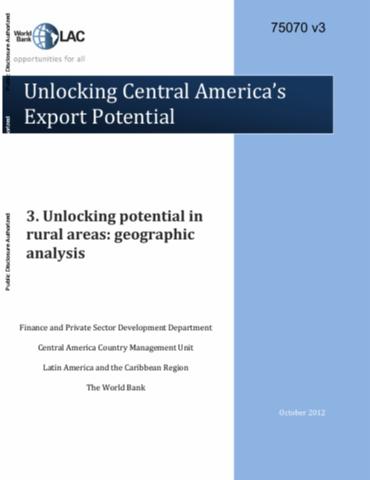Resource information
The Central America region is a small market. The region contains around 43 million inhabitants (0.6 percent of total world population) who generate around 0.25 percent of the world's Gross Domestic Product (GDP). While the region has successfully embarked on a regional integration agenda and has strong commercial links with the US, extra-regional trade-mainly with large fast-growing emerging economies-remains a challenge. Export performance is analyzed along three dimensions that, together, give a fairly comprehensive picture of competitiveness: 1) the composition, orientation and growth of the export basket; 2) the degree of export diversification across products and markets; and 3) the level of sophistication and quality of their main exports. This analysis allows exports dynamics at the different margins of trade (intensive, extensive, and quality) to be evaluated and individual countries' to be benchmarked with peers in the Central American region. The results of this report allow policy makers to identify key areas to explore in the overall discussion of export competitiveness in the Central American region. This paper relates to the literature on challenges and opportunities that trade liberalization can bring to the Central American region. Much of the recent literature focuses on the role of the free trade agreement negotiated by Costa Rica, the Dominican Republic, El Salvador, Guatemala, Honduras, and Nicaragua, with the US.


